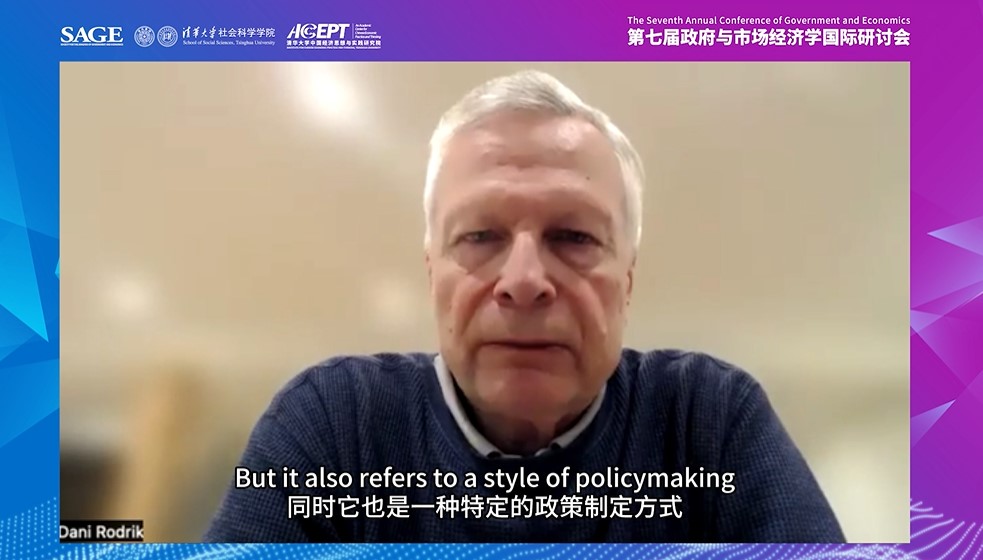
The following is a summary of Dani Rodrik's keynote address to attendees at the Seventh Annual Conference of Government and Economics held at Tsinghua University, Beijing, on June 7, 2025. Dr. Rodrik is the Ford Foundation Professor of International Political Economy at Harvard University's John F. Kennedy School of Government.
On June 10, 2025, the Seventh Annual Conference of Government and Economics, co-hosted by the Society for the Analysis of Government and Economics (SAGE) along with Tsinghua University's School of Social Sciences and the Academic Center for Chinese Economic Practice and Thinking (ACCEPT), was broadcasted online. Ford Foundation Professor of International Political Economy at Harvard University's John F. Kennedy School of Government, Dani Rodrik, delivered a keynote address to attendees at the conference in a video presentation.
Rodrik advocated for rethinking the framework for global governance and the paradigm for implementing industrial policies. He explained that the conventional model of globalization, which requires countries to undergo a convergence in their economic practices and abide by strict international rules, has failed as a result of an inability to account for the differences in national development paths, as has been evidenced by the ongoing clash between the industrial policies of countries such as China and the United States. The ideal alternative would be a kind of intermediate regime: one that grants countries autonomy over a broadened policy space and establishes mechanisms for cross-border dialogue that distinguishes between "beggar-thy-neighbor" policies and legitimate domestic goals, thereby reducing negative spillovers from economic interdependencies through the building of mutual trust and confidence.
Based on this alternative framework, Rodrik proposed a new paradigm of "productivism" that can surmount the limitations of traditional industrial policies. As for its goals, this new paradigm not only promotes the upgrading of the manufacturing industry, but also emphasizes the potential of the service industry to innovate and create high-quality employment opportunities, in addition to favoring labor-friendly technological advancements that improve overall productivity. In terms of the methodologies for putting "productivism" into practice, this paradigm moves beyond solely providing subsidies and related incentives, proposing instead that governments and enterprises engage in the dynamic optimization of policies through iterative collaboration, while tolerating a process of trial and error alongside a preference for making corrections in a timely manner. Moreover, decentralization can be regarded as the most appropriate approach when it comes to actual implementation, which requires that local institutions become deeply involved in the process so as to avoid the proclivity towards centralizing management and control.
In specific reference to developing countries, Rodrik explained that the traditional export-driven path towards achieving industrialization is no longer viable, underscoring an imminent need for these countries to shift their development strategy towards an inclusive growth model driven by the service industry. One of the cruxes for delivering on such an approach is to expand the labor-absorbing service sector through the roll out of "labor-enhancing technologies." Although the payoff schedule is longer than previous industrialization models, this development strategy nevertheless can directly benefit the broad majority of workers. Its essence is to move away from relying on global value chains and instead focuses on fostering the economic conditions necessary for developing a local service industry, which in turn can provide a means to fundamentally realize the core purpose of development—that is, improving the productivity level of the greatest number of people possible.